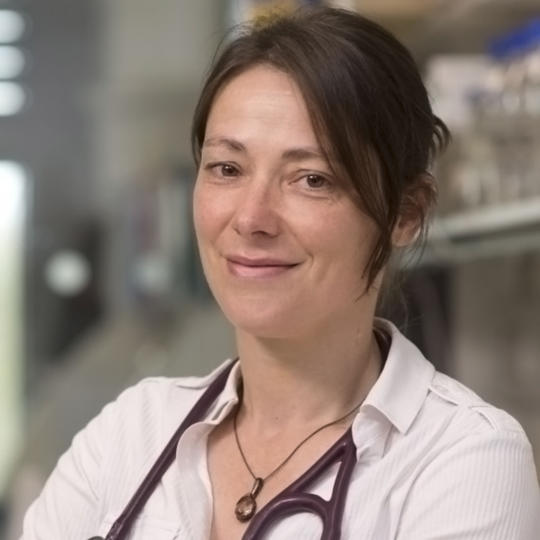Clatworthy Group
Cellular Genomics
The team’s research focuses on these areas:
- Kidney Cell Atlas – decoding the development, function and interactions of immune cells in the human kidney.
- Bladder Cell Atlas – understanding the cell circuits working during homeostasis and bladder infections.
- Humoral immunity in tissues – analysis of B cells and plasma cells (cells responsible for antibody production) within different tissues.
- Macrophage function in tissues – profile the different types of macrophages that are present in organs and their role in tissue defence and biology.
To find out more about Professor Menna Clatworthy, please click here.
Partners
We work with the following groups
External
Partners: Chan Zuckeberg Initiative Kidney Seed Network
This network brings together a scientific team to form the Kidney Seed Network to help generate the Kidney Human Cell Atlas (Kidney-HCA).
The team spans clinicians, biologists, genomics and genetics experts and computational scientists and is based on the connections formed in the past two years as part of the Human Cell Atlas with collaborations initiated between Boston (Greka/Regev), Bay Area (Sarwal/Ye/Nolan), UK (Clatworthy/Teichmann) and Michigan (Kretzler/Balis) teams. The Kidney Cell Atlas will provide a comprehensive foundational resource open to the scientific community including scientists and clinicians.
External
Funder: National Institute of Health Research (NIHR) Professorship
Title: Can we identify biomarkers and mechanistic pathways to improve organ utilisation and kidney transplant outcomes?
The aim of this research is to find ways of predicting whether, and to understand why, a kidney transplant is going to work well in the short and long term. We will use cell atlasing technologies to examine these kidneys with the aim of developing a tool that can be used by transplant doctors to help them decide whether to use an organ. Ultimately, this will lead to more kidney transplants that last longer, keeping patients off dialysis.
External
Funder: Medical Research Council Human Cell Atlas Grant
Title: Defining regional anatomical variation in cellular composition, transcriptome and epigenome in the human kidney
We will use a combined approach profiling single cell suspensions obtained from dissociated tissues, together with highly multiplexed spatial analysis of intact tissue samples to generate single-cell molecular profiles across the entire cross-section of the adult human kidney, and to investigate whether the epigenome of kidney-resident immune cells varies across different anatomical regions of the kidney.
